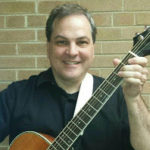“How about we stop blaming the victims?” Emma Gonzalez, survivor of the shooting at Marjory Stoneman Douglas High School
Mental Illness affects more than 70 million people in the United States. But of all the violent acts committed in this country, only 4 to 5% are attributable to people with mental illness. People with serious mental health problems are 12 times more likely to be the victims of violence than the perpetrators.
Blaming mental illness for gun violence may be easy to do, but it’s wrong, stigma-increasing, and ignorant.
Social commentator and comedian John Oliver has said this.
“It seems there is nothing like a mass shooting to suddenly spark political interest in mental health,”
Oliver has also pointed out that the aftermath of gun violence is perhaps the worst time to talk about mental health when you consider that the large majority of those with psychological disorders are not violent.
Blaming mental illness for gun violence may be easy to do, but it’s wrong, stigma-increasing, and ignorant.
The aftermath of school shootings is not the time to debate mental health treatment. It’s the time to stop blaming victims, stop scapegoating 70 million people, stop stigmatizing anyone who seeks to improve their mental health. It is time to work together from all avenues to keep guns out of the hands of people who would do harm.
How about we stop blaming the survivors of violence in our country and instead work together to make things better? How about we listen to the wise, motivated, and angry voices of students crying in the wilderness:
“We are losing our lives while the adults are playing around,” Cameron Kasky, survivor of the shooting at Marjory Stoneman Douglas High School
And the voices and actions of students shall lead them.

Rev. Kirk Moore (he, him, his)
Kirk Moore (he, him, his) is a guitarist, vocalist, and a certified music practitioner, (CMP). He’s also the pastor of St. Paul’s United Church of Christ in Downers Grove, IL and a member of the executive board of the UCC Mental health Network. Find out more about therapeutic music here.
